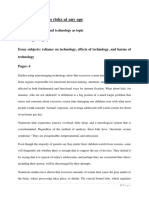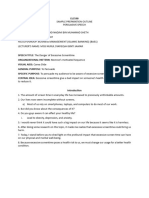Screen time
by Railyn 7C
“Go touch some grass.” People often used this phrase during the COVID-19 pandemic, but why? How long
do you spend on screen time on a daily basis?
Firstly, it may deteriorate your physical and mental health. Excessive screen time has its downsides. The
National Library of Medicine states that, on average, people spend up to 7 hours every day on screen
time. As a matter of fact, screen time may deteriorate both your physical and mental health. Addiction can
damage your mental health, leading to a halt in language, brain, and behavior development. All combined,
they can lead to lower academic performance. Physical risks include obesity or sleep deprivation. Do you
often stay up to have more screen time? Sleep plays a significant role in your growth. Lack of sleep can
increase your weight, risk of diabetes and heart disease, and mood swings, and reduce immune function.
Sometimes, you refuse to go out because of screen time. When you don’t exercise because of more
screen time, you increase the likelihood of obesity.
However, digitalisation is becoming a part of our world. Some of you might be thinking of completely
eliminating screen time from your life. However, in the ever-expanding world, digitalisation has become a
part of our lives, and new technologies are being formed. It’s almost impossible to live without it. It
provides us with access to a convenient life, assisting us with everyday work, and grants us access to
more social connections and information. It bridges geographical gaps, increasing the likelihood of human
connections globally. For example, we all are currently using laptops to finish our homework. This proves
that humans are using gadgets to their advantage every day. My cousin is an example of someone
affected by excessive screen time. Every day, he plays games. Now, he experiences a delay in his
language development.
So, whilst screen time may be beneficial, an excessive amount of it is dangerous. What can we do? We
can manage our screen time. The right amount of screen time might reduce your risk of physical and
cognitive problems. We can't completely eliminate screen time from our lives, but we can regulate it to
serve meaningful purposes. But the question remains: when will you take action? How long will we wait
before it damages our health? It’s now or never.


























































